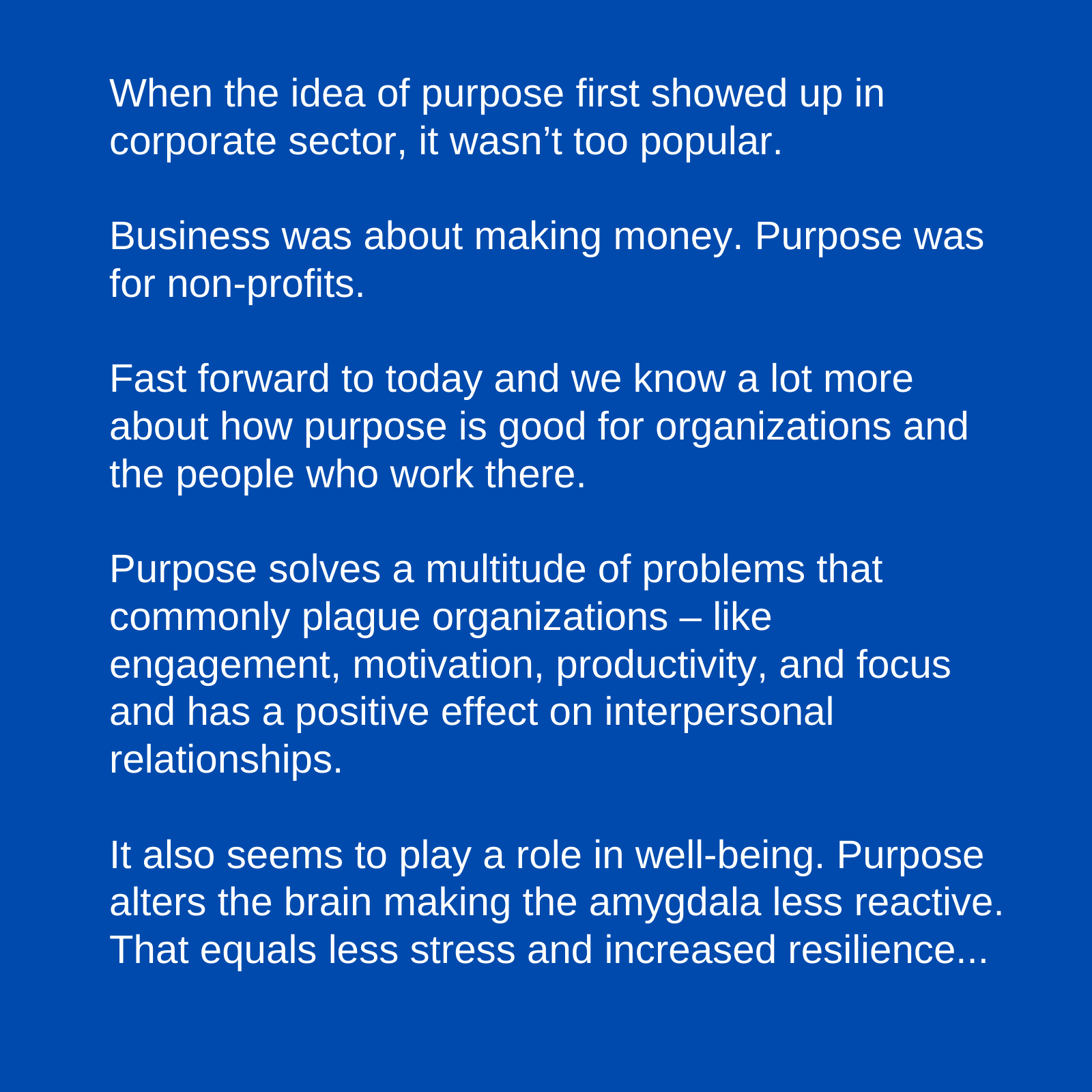When the idea of purpose first showed up in corporate sector, it wasn’t too popular. Business was about making money. Purpose was for non-profits.
Fast forward to today and we know a lot more about how purpose is good for organizations and the people who work there.
Purpose solves a multitude of problems that commonly plague organizations – like engagement, motivation, productivity, and focus and has a positive effect on interpersonal interactions.
It also seems to play a role in well-being. Purpose alters the brain making the amygdala less reactive. That equals less stress and increased resilience.
Purpose in life also decreases the likelihood of dementia, stroke and cardiovascular disease.
It appears to protect against depression, decrease the effects of aging on the body and brain, and lessen the impact of the toll of daily stress and challenges.
As popular as purpose has become in organizations, there’s a key piece missing.
Most corporations develop purpose for the organization.
But to really unlock the full effects of purpose, you want to help people define their individual purpose in life and enable them to connect their purpose to the larger purpose of the organization.
#ConsciousLeadership #PersonalDevelopment #Resilience #Wellbeing #MentalHealth #NextLevelThinking #Success #BurnoutPrevention #GrowthMindset

